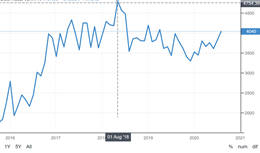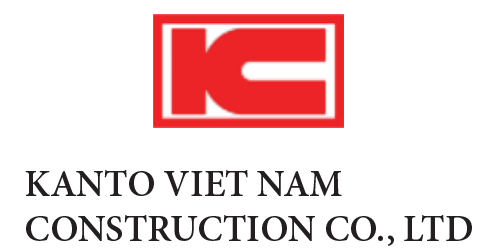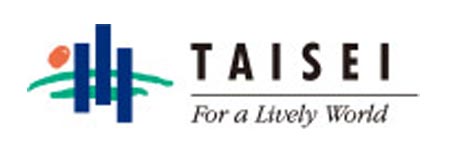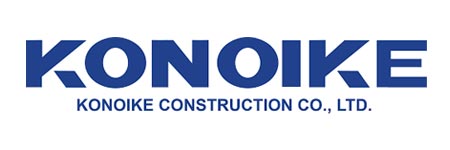worldsteel Short Range Outlook October 2020
According to the World Steel Association, due to the impact of the COVID-19 pandemic, worldwide steel demand will decline in 2019 and gradually recover in 2020. China is one of the countries with the ability to recover early after the pandemic.
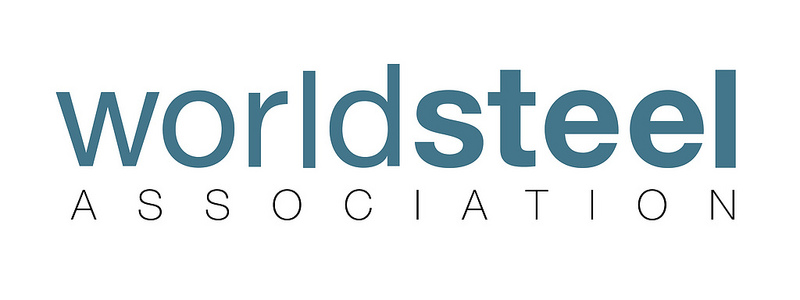
worldsteel Short Range Outlook October 2020
The World Steel Association (worldsteel) today released an update to its Short Range Outlook (SRO) for 2020 and 2021. This SRO is showing a much more optimistic outlook than the previous SRO finalised in June. While still showing a decline in demand for 2020, it is a much smaller decline than previously expected.
In 2020 worldsteel forecasts that steel demand will contract by -2.4%, dropping to 1,725.1 Mt due to the COVID-19 pandemic. In 2021 steel demand is expected to recover to 1,795.1 Mt, an increase of 4.1 % over 2020. A strong recovery in China will mitigate the reduction in global steel demand this year. The post lockdown recovery in steel demand in the rest of the world has been stronger than was earlier expected, but it still marks a deep contraction in 2020, both from developed and emerging economies, with only a partial recovery expected in 2021.
The forecast assumes that despite the current resurgence in infections in many parts of the world, nationwide lockdowns will not be repeated. Instead, selective and targeted measures will be able to contain this second wave.
Commenting on the outlook, Mr Al Remeithi, Chairman of the worldsteel Economics Committee, said, “the global steel industry passed the lowest demand point for this year in April and has been recovering since mid-May. However, the recovery is uneven across countries depending on their success in containing the virus, the national industry structure, and finally economic support measures. China has shown a surprisingly resilient rebound contributing to a major upward revision of the global growth forecast for 2020. In the rest of the world, we will see a sharp contraction of steel demand, both in developed and developing economies. This crisis has been particularly challenging for developing economies as they continue to struggle with the uncontrolled virus, low commodity prices and falls in exports and tourism. The pandemic has accelerated megatrends which have been slowly transforming both our and our customers’ industries, leading to a lasting impact far greater than short term demand consequences.”
1. China
China's strong recovery since late February, which continues at a steady pace, suggests positive GDP growth in 2020 despite a -6.8% contraction in the first quarter.
During January-August, investment in real estate was up 4.6% y-o-y, and infrastructure investment recovered to the level of last year. In August, the mechanical machinery and automotive sectors showed a y-o-y growth of 10.9% and 7.6% respectively. As a result the mechanical machinery sector's output during January-August surpassed that of 2019 (+1.2%), while automotive production is still 9% below the 2019 level. With retail sales also catching up in August, the Chinese economy is rapidly approaching full normality.
China’s steel demand is expected to increase by 8% in 2020, aided by government infrastructure stimulus and a strong property market. In 2021, steel demand is expected to stay flat as a result of the following two forces. First, the infrastructure and housing projects initiated in 2020 will continue to support steel demand in 2021. On the other hand if the economy shows a full recovery the government is likely to reverse its stimulus policy to cool down the construction sector. Given the outlook for a weak global economy in 2021, the manufacturing sector's rebound will be limited.
2. Advanced economies
Manufacturing in the developed economies, which was only just beginning to recover from the slowdown in late 2019, was pushed back again by the pandemic. Even with a strong bounce back after the economies reopened, which has closed the gap with pre-pandemic levels, double-digit contraction over the whole year still seems unavoidable.
In the US, recovery from the lockdown has been strong, aided by substantial government support measures. The manufacturing downturn was shorter and less acute than expected. However, the US is still struggling to control the virus's spread, and the recovery momentum might taper off in the coming months. The outlook for 2021 is less optimistic, with a subdued outlook for construction and auto production.
In Europe, the negative economic impact of COVID-19 was softened by strong social security schemes and fiscal stimulus. The post lockdown recovery in the EU is turning out to be stronger than expected, but the deep contraction of major steel using sectors, especially automotive, will contribute to a double-digit contraction in 2020 The contraction was particularly pronounced in Italy and Spain.
In Japan and South Korea, despite relatively successful management of the virus with less severe containment measures, steel demand will see a substantial contraction in 2020 with limited recovery next year due to falling exports and weak confidence.
Overall steel demand in the developed economies is expected to fall by -14.9% in 2020 and increase by 7.9% in 2021.
The COVID-19 pandemic will exert a less severe impact on steel demand in the developed economies than the global financial crisis, bearing in mind that at the beginning of the pandemic, steel demand had not yet fully recovered from the 2008/9 crisis.
3. Developing economies excluding China
Generally the emerging economies have been less well equipped to absorb the pandemic shock, and the impact has been uneven, depending on the economic structure and the severity of the containment measures required. The impact has included rapidly falling domestic demand, the collapse of exports and commodity prices, and a free fall in tourism with no immediate recovery being seen. A double-digit fall in steel demand is expected in 2020 for the major emerging economies.
India and Brazil have suffered most from a failure to effectively control the virus. India, where one of the most severe lockdowns in the world was implemented, is expected to see the deepest decline in steel demand in decades. However, a relatively fast recovery should take place in 2021, supported by rural consumption and government investment in infrastructure. In Latin America the impact has been high across the continent due to its structural problems and poor crisis management. The resulting interruption in reforms and deterioration of the region's social stability suggest a slow recovery in 2021.
In ASEAN, while some countries fared well and needed less stringent lockdowns, Malaysia and the Philippines were severely affected. Vietnam will see positive growth in steel demand due to the successful containment of the virus.
The MENA region was also severely hit by the dual shock of the pandemic and falling oil prices.
In 2021, the recovery of steel demand in the developing economies is expected to be less than full but faster than the developed economies, driven by infrastructure investment. Steel demand in the emerging economies, excluding China, is expected to fall by -12.3% in 2020 and recover by 10.6% in 2021.
Steel using sectors
In general, the steel using sectors suffered less from the lockdown and are recovering faster than the hospitality, aviation, and entertainment sectors. A strong rebound in manufacturing will be counterbalanced with a lasting impact on the steel using sectors' supply chain due to small and medium sized enterprises going bankrupt.
1. Construction
The construction sector remained more resilient to the COVID-19 shock as many governments focused on implementing public projects. Following the easing of lockdown this continued in the advanced economies, mostly driven by infrastructure investment, pent-up demand, low mortgage rates and easier access to credit.
The construction sector in many emerging economies will see a double-digit contraction in 2020, notably Turkey, Mexico and Brazil, as they enter a deep recession and face financing issues. On the other hand, in China, the construction sector will rebound strongly, thanks to government stimulus measures.
The recovery in 2021 will be slow. Looking forward, infrastructure is expected to drive construction growth in the coming years, especially in developing economies. Financing difficulties arising from worsened government balance sheets might lead to a revision of investment plans. The subdued oil outlook will also put energy sector investments in check, particularly in the US and MENA. Green recovery programmes could boost infrastructure investment in the developed economies.
In the longer term, structural changes in the construction sector will take place, reflecting the shift in demand patterns for office and residential space and major changes in urban design and build regulations.
2. Automotive
The automotive sector suffered dramatic consequences from the pandemic. In April, automotive production fell by -70-90% in many countries. While supply-side issues dissipated relatively quickly, post-lockdown recovery has been constrained by a slow return in demand. Global automotive production was down by -34% (y-o-y) in Q2 2020. However, In China, robust domestic demand has helped a faster recovery, but overall from January to August 2020 China's motor vehicle production is still 9% below the 2019 equivalent. In the rest of the world, the situation is much worse. In January-August, car production in Germany and the US was down by more than -30% (y-o-y). For the same comparison period India’s passenger car production, which completely halted during the lockdown, is 46.1% below last year.
At the same time the industry is going through substantial restructuring with realignment of supply chains for increased resilience, changes in urban mobility patterns along with the ongoing transition to EV.
3. Machinery
The sector was severely hit by the disruptions of supply chains and decline in orders during the lockdown. China led the contraction of the machinery sector in Q1 2020, which was followed by the EU, the US, and Japan in Q2. Since May, the decline of machinery output decelerated, but the industry is still contracting in most countries. Low profits and confidence is causing delays or cancellation of investment projects and making recovery of the sector beyond the initial rebound sluggish. Exceptionally in China, the output level during January-August 2020 has exceeded that of 2019.
The subdued prospect of investment recovery will constrain the recovery of the machinery sector in the mid-term.
PRICE INDEX OF STEEL PRODUCTS REPORT IN CHINA AND VIETNAM 2016 - 2020
Overall, there is an expansion in the price of steel within the last 5 years.
News Detail
- STATISTICS OF STEEL PRICE IN CHINA, VIETNAM AND OTHER REGIONS IN THE WORLD
- Construction material shortages to continue in 2021
- worldsteel Short Range Outlook October 2020
- PRICE INDEX OF STEEL PRODUCTS REPORT IN CHINA AND VIETNAM 2016 - 2020
- Steel made in Vietnam is not dumped in Korea
- Overview of steel consumption in the Member States of SEAISI and Japan
